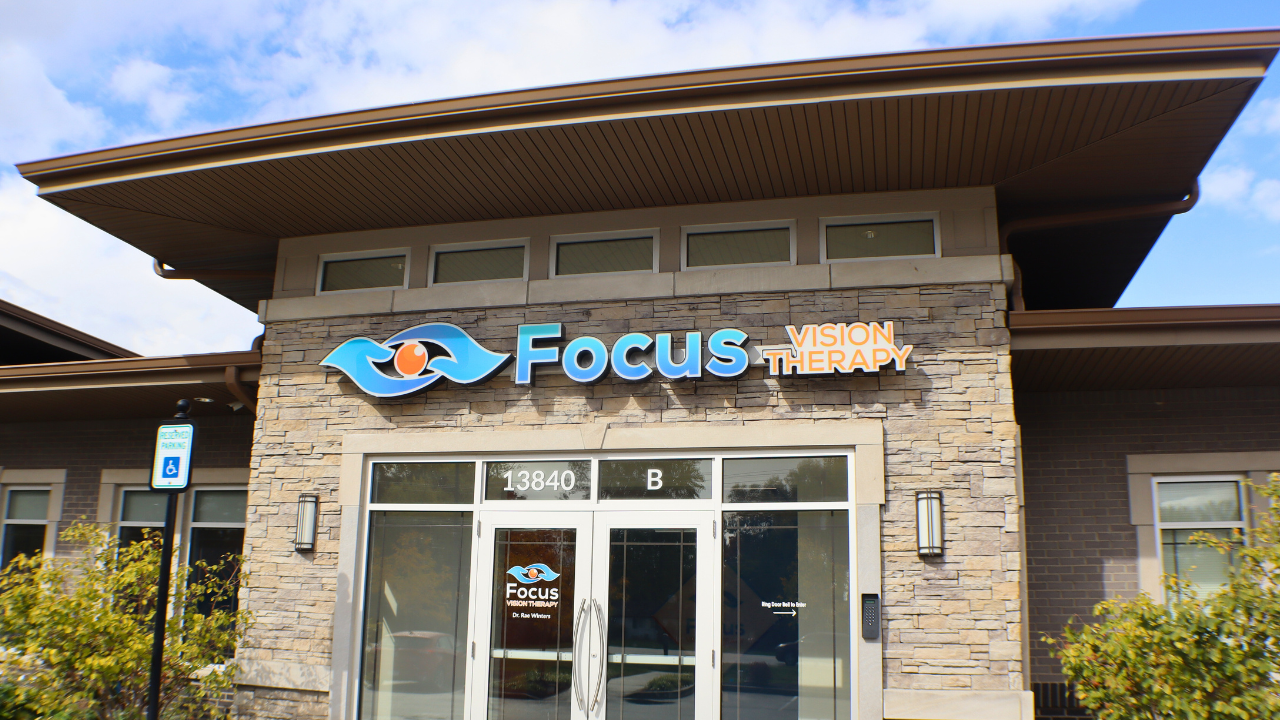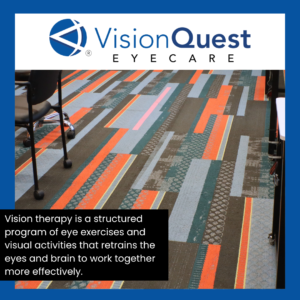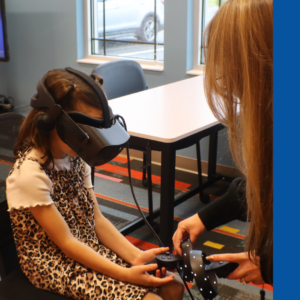If you’ve ever been told that glasses are the only solution for vision problems—or that it’s “too late” to improve how your eyes work—you’re not alone. Myths like these have kept many people from discovering one of the most effective, non-invasive treatments available: vision therapy.
At VisionQuest Eyecare, we’re proud to offer a specialized division called Focus Vision Therapy, led by Dr. Rae Winters. This unique program helps children and adults improve their visual performance through guided, personalized therapy plans that go beyond what glasses or contacts can correct.
Let’s set the record straight and debunk some of the most common misconceptions about vision therapy.
What Is Vision Therapy?
Vision therapy is a structured program of eye exercises and visual activities that retrains the eyes and brain to work together more effectively. It’s not a generic set of exercises—it’s a custom-tailored, one-on-one treatment plan designed for the individual’s specific vision issues.
Vision therapy is especially effective for conditions like:
- Convergence insufficiency (difficulty focusing on near objects)
- Eye tracking issues
- Poor visual processing or perception
- Double vision
- Post-surgical visual rehab
Whether a patient is struggling to read comfortably, focus at school, or recover from a concussion, vision therapy may be the missing piece.
Myth #1: “There’s No Research Supporting Vision Therapy”
This is one of the most persistent myths—and it’s simply not true. The National Eye Institute (NEI) and other major research institutions have conducted multiple studies confirming the effectiveness of vision therapy, particularly for convergence insufficiency and binocular vision issues.
In fact, NEI-funded research shows that office-based vision therapy with home reinforcement is significantly more effective than home-based exercises alone for improving eye coordination and comfort.
Myth #2: “Vision Therapy Is Just for Kids”
While it’s true that children often benefit from vision therapy—especially those struggling in school due to undiagnosed visual processing issues—it’s absolutely not just for kids.
Adults can and do benefit from vision therapy. In fact, many adults seek treatment after years of living with untreated visual strain, reading fatigue, or post-traumatic visual symptoms. The brain and visual system are adaptable at any age, making improvement possible well into adulthood.
Myth #3: “Vision Therapy Is Too Expensive”
Cost is a valid concern for many families, but vision therapy is often more affordable than people think. Some insurance plans offer partial coverage, and payment plans are available to make treatment more accessible. At Focus Vision Therapy, we believe that clearer, more comfortable vision is worth the investment—and we work with you to make it manageable.
Myth #4: “I Just Need Glasses—Not Therapy”
Glasses are designed to improve how you see—but they don’t teach your eyes how to work together. Vision therapy focuses on eye coordination, depth perception, and visual processing—skills that glasses alone can’t build.
Think of it this way: glasses are like crutches for a sprained ankle. They help you get around, but they don’t strengthen the muscles. Vision therapy is the physical therapy that retrains and strengthens your visual system.
Myth #5: “Only Surgery Can Fix Serious Eye Problems”
While surgery can correct structural issues in the eye, it doesn’t always address how the brain and eyes function together afterward. Vision therapy can play a vital role in post-surgical recovery, helping patients regain depth perception, focus control, and eye coordination.
For many patients, the combination of surgery and vision therapy delivers the best outcomes.
Myth #6: “All Vision Therapy Programs Are the Same”
Not all programs are created equal. Effective vision therapy should be customized to the individual and delivered by a trained specialist. At Focus Vision Therapy, Dr. Rae Winters and her team provide personalized, one-on-one sessions in a supportive and engaging environment.
Our therapy is based on clinical evaluation and progress tracking—not a one-size-fits-all plan.
Is Vision Therapy Right for You?
If you or your child experiences:
- Frequent headaches or eye strain when reading
- Skipping lines or losing place on the page
- Double vision or blurred vision at times
- Poor reading comprehension or attention issues
- Difficulty with hand-eye coordination
…vision therapy may be the solution you’ve been looking for.
Ready to Train Your Eyes for Better Vision?
Whether you’re an adult struggling with visual discomfort or a parent noticing signs of eye coordination issues in your child, Focus Vision Therapy at VisionQuest Eyecare is here to help.
Schedule a consultation with Focus Vision Therapy and our dedicated team to learn if vision therapy is the right path for you. With locations in Greenwood and Fishers, we’re ready to guide you through a therapy plan that builds stronger vision—and greater confidence—step by step.

Dr. Rae Winters received her doctorate from Indiana University School of Optometry and completed her Residency in Vision Therapy and Rehabilitation at Wow Vision Therapy in St. Joseph, Michigan, where she received special training in the optometric treatment of strabismus, amblyopia, vision-related learning problems, and traumatic brain injury. She is passionate about helping children reach their visual potential through pediatric eye exams, vision therapy, and myopia management!



